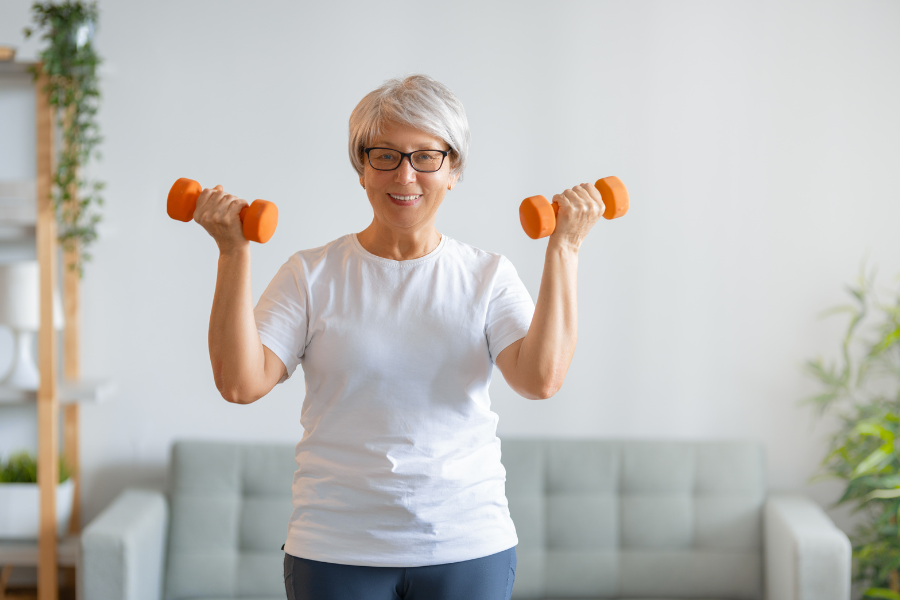Falls are a significant concern for many Australians, particularly as we age, with individuals over 65 being the most vulnerable to hospitalisation following a fall. It stands as the leading cause of both hospitalisations and injury-related deaths, accounting for over 40 percent of each.
Not only can falls cause injuries and fractures, falls can severely impact one's independence, confidence, and overall quality of life. A key contributor to the risk of falls is the loss of muscle mass. With each passing decade after the age of 30, muscle mass can decline by 5-10 percent. Maintaining or increasing muscle mass is one of the most effective strategies in reducing the risk of falls. While lighter weights may be effective to some extent, heavy lifting proves to be more beneficial, as you shouldn’t rely on cardiovascular exercise alone to maintain your muscle mass.
Also ensuring you consume enough daily protein is beneficial in maintaining muscle mass and preventing falls. For most older adults, aiming for 1.2 - 1.5 grams per kg of body weight is recommended. Other factors such as smoking, alcohol consumption, and lack of sleep can also negatively impact your muscle synthesis.
Maintaining muscle mass can also help reduce many age-related issues such as diabetes, certain cancers, osteoporosis, dementia, cardiovascular, frailty and age-related disabilities.
Exercises to help prevent falls
It is recommended that you complete a minimum of 2 strength sessions per week, focusing on 1-3 sets of 8-12 repetitions, but not exercising too hard where you feel out of breath.
The exercises should focus on working the large muscle groups, so movements like pushing, pulling, squatting or deadlifting can be more than adequate for most. Find movements that can fit into your routine and that you can perform regularly. There is high evidence that well-designed exercise programs reduce the rate of falls among older people by approximately 25%.
How an Exercise Physiologists can help prevent falls
An Exercise physiologist can help by designing personalised exercise programs and providing education and support to help you build strength, improve balance, and reduce your risk of falling. They'll teach you techniques for how to get up after a fall, strategies for improving balance, and tips for modifying your environment to reduce the risk of falls.
If you’re concerned about falls or wish to take proactive measures to safeguard yourself, contact us today to discuss how we can help you maintain your independence and stay safe at home.

